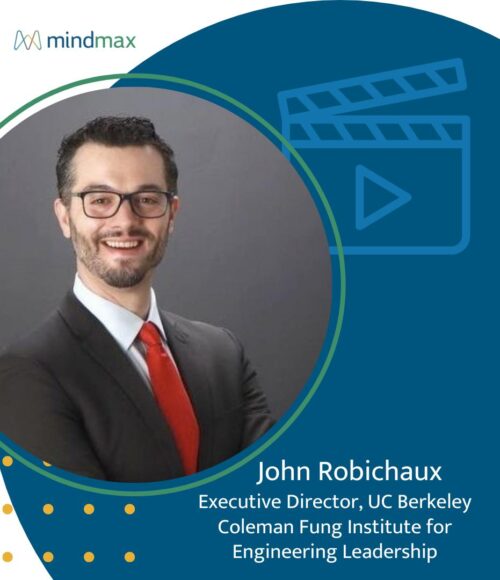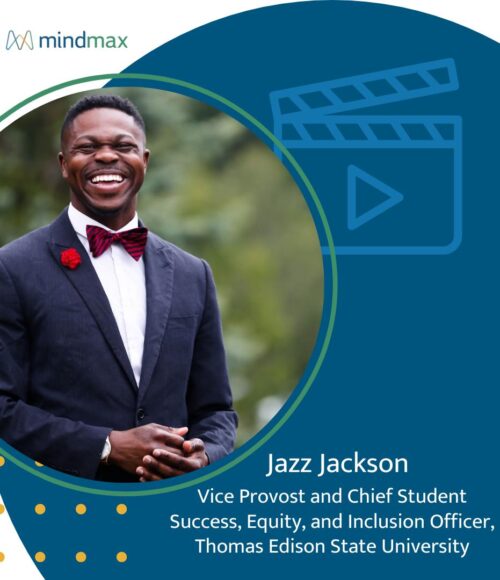John Robichaux Wants Lifelong Learning to Drive Public Impact

John Robichaux Wants Lifelong Learning to Drive Public Impact
In this wide-ranging conversation, John Robichaux, Executive Director at the UC Berkeley Coleman Fung Institute for Engineering Leadership, sits down with MindMax CEO Lee Maxey to explore how lifelong learning can shape the future of higher education, workforce development, and society.
Drawing on experience from top institutions like Harvard, Stanford, and now Berkeley, Robichaux shares how engineering and technology leadership must be taught across the full career arc—from undergraduates to encore professionals. “We’ve moved past just offering technical skills,” Robichaux explains. “We’re helping engineers and technologists lead from the start—and continue evolving as people, not just professionals.”
Whether he’s training policymakers on AI, engaging with late-career learners seeking meaning, or building partnerships with community colleges, Robichaux makes one thing clear: lifelong learning has a vital role in expanding access, creating public good, and closing generational and economic gaps.
Watch the full conversation.
Participants:
– Lee Maxey, CEO, MindMax
– John Robichaux, Executive Director at the UC Berkeley Coleman Fung Institute for Engineering Leadership
Core Themes:
– Leadership development for engineers and technologists across a lifetime
– The evolving role of lifelong learning in the context of societal change and economic mobility
– Collaboration between four-year institutions and community colleges
– Advancing public impact through education, policy, and research translation
– Shifting mindsets around aging, career transitions, and philanthropic engagement
Key Concepts Covered:
– The shift in leadership roles within Fortune 500 companies, emphasizing the need for engineers and technologists to possess leadership skills from the start of their careers.
– The importance of technology and engineering leadership in addressing global challenges, highlighting that effective leadership is essential for making a real-world impact.
– Experiences working with policymakers across various levels, emphasizing the need for a two-way conversation between universities and policymakers to address emerging challenges and opportunities in technology and engineering.
– The necessity of addressing educational pathways for those not pursuing traditional four-year degrees, highlighting the societal implications of this issue.
– Experiences with AI, explaining the differences between broad generative AI models and narrow AI applications and warning about the over-trust in AI systems.
– The responsibility of institutions like Berkeley to help society understand AI’s implications and promote AI literacy across all educational levels.
Related Ideas
Jazz Jackson Wants to Help Every Student Finish What They Start

John Robichaux Wants Lifelong Learning to Drive Public Impact
